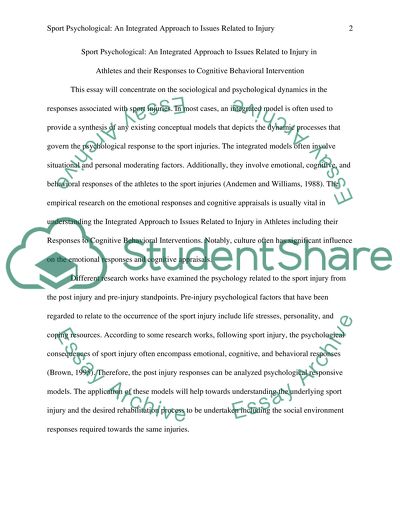Sport Psychological: An Integrated Approach to Issues Related to Research Paper. Retrieved from https://studentshare.org/psychology/1468087-sport-psychological-an-integrated-approach-to
Sport Psychological: An Integrated Approach to Issues Related to Research Paper. https://studentshare.org/psychology/1468087-sport-psychological-an-integrated-approach-to.


